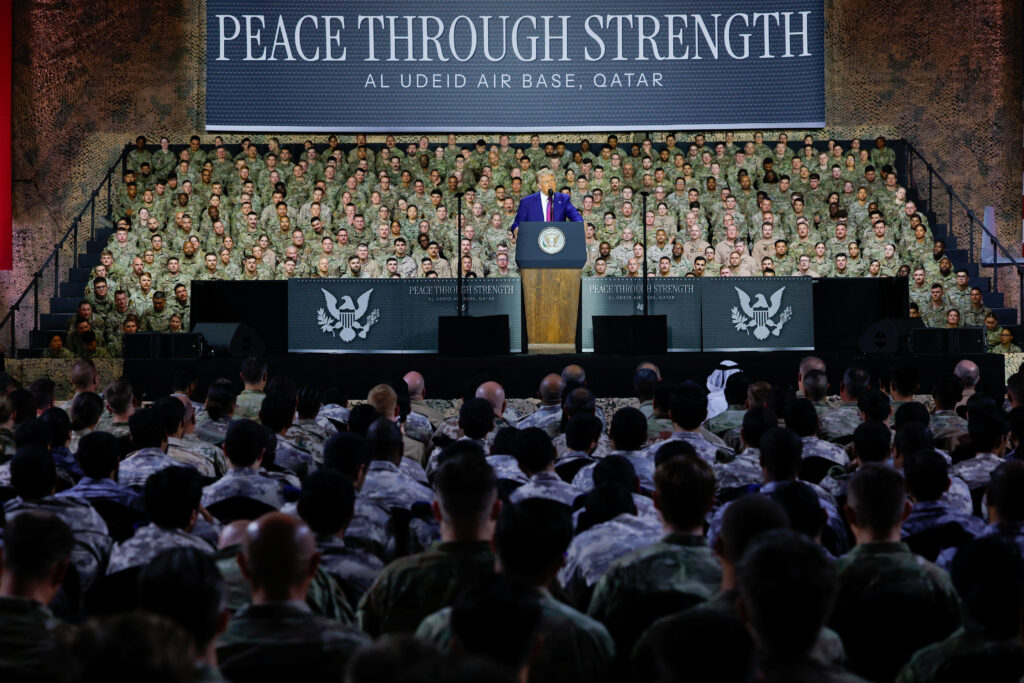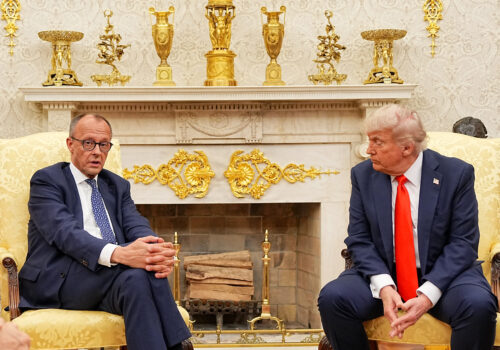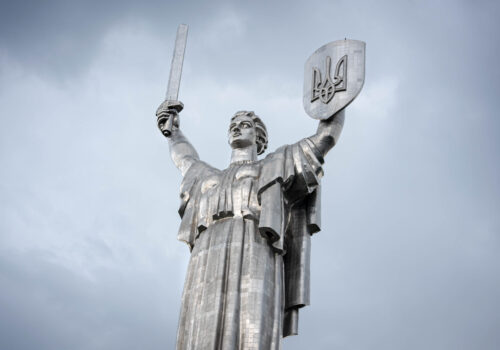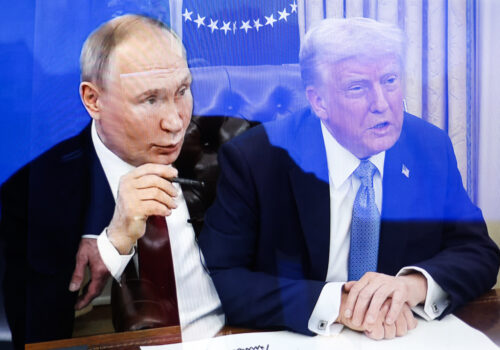This is part of a series of regular assessments of the efforts, spearheaded by the Trump administration, to achieve a negotiated end to Russia’s war on Ukraine. Read last week’s edition here.
It’s not always the weeks with the most activity that reveal the most. After several consecutive weeks of news-making developments in Russia’s war in Ukraine, this past week seemed quieter. Yet upon closer inspection, it did feature some public musings by US President Donald Trump that sadly suggest a certain unwillingness to confront a painful reality. It also saw the administration decide to redirect a shipment of thousands of counter-drone missiles that were originally intended for Ukraine. Taken together, these rhetorical and policy choices only encourage Russian President Vladimir Putin to continue his war of conquest and make it harder for Trump to reach his stated goal of establishing a durable peace in Ukraine.
The painful reality is that the Kremlin does not want peace in Ukraine. It wants, as former Russian President Dmitri Medvedev said publicly, victory. The proof, of course, is that Russia has rejected multiple Trump peace proposals that Ukraine has accepted. Confronted by this, as early as April 24, Trump has acknowledged that Putin might be stalling and said then, and again on April 27, that he would know in “two weeks” if that were so and, if so, he would put some form of pressure on Russia.
Trump has been talking about a two-week deadline for nearly two months and has said on several occasions over this period that he might have to impose sanctions. Yet he continues to dither. Why does he keep bringing up sanctions if he is not acting on his threats to impose them? The obvious answer is that he is under regular criticism—including from Republicans in Congress—for not living up to his stated promise to achieve a stable peace by putting pressure on the side obstructing progress. Members of both parties in the Senate for nearly three months have been working on a major sanctions bill against Russia. It now has eighty-four cosponsors, which means that a large majority of Republican senators are on board. House Speaker Mike Johnson is also an advocate. In the past two weeks, Trump has asked the Republican senators both to weaken the bill’s provisions and to delay its introduction. They are still heeding his request, but impatience is growing, as evidenced by a June 12 statement from US Senator Lindsay Graham (R-SC), the bill’s original sponsor. Trump’s posturing—floating the idea of sanctions even while he refrains from imposing them—helps the White House manage this pressure, but this can continue indefinitely.
Trump’s public musings on Russia also betray his unwillingness to take the strong steps that might persuade Putin to seriously negotiate. Last week, Trump characterized Russia and Ukraine as two brawling boys, rather than as aggressor and victim. This week, he said that he thought it strange that many American observers have a positive view of Japan and Germany, whom the United States fought in World War II, and a negative view of Russia, a US ally in that war—with no reference to Russia’s savage aggression in Ukraine or to the fact that Moscow considers the United States its principal adversary.
As the latest two-week deadline passed this week with the Kremlin still firmly opposed to US peace proposals, Trump commented that Putin does not care about the human costs of war, but added that he was frustrated by both Russia and Ukraine.
While the president postures inconsistently, his administration is making decisions that disadvantage Ukraine. A case in point is the Defense Department’s decision to divert US counter-drone weapons from Ukraine to the Middle East. This decision was likely not taken with the goal of weakening Ukraine, but that was certainly the result. Such a decision can only be taken because the administration is not operating on the common-sense understanding that if it wants a durable peace in Ukraine, it must make it much harder for Putin to seize more of the country.
The Trump administration’s position in the preparation for the Group of Seven (G7) Summit in the coming days also highlights its peculiar interest in accommodating the Kremlin. The G7’s members have decided not to release a joint communiqué, unlike last year, in part, I suspect, because previous G7 statements have included sharp criticism of Kremlin aggression. The White House, meanwhile, has avoided language critical of the Kremlin since February in the G7, NATO, and the United Nations.
Trump’s concessions to Russia on this language, his efforts to obscure the perception that Russia alone is blocking his peace initiative, and the decision to take weapons away from Ukraine have not made the Kremlin more reasonable. These measures only encourage Putin to expect that the United States will detach itself from Ukraine and that a Russian victory awaits. The Biden administration’s weakness in Afghanistan invited Putin’s full-scale invasion of Ukraine. Trump promised peace through strength. When will he start to deliver?
John E. Herbst is the senior director of the Atlantic Council’s Eurasia Center and a former US ambassador to Ukraine.
Further reading
Sun, Jun 8, 2025
A German leader’s D-Day lesson for Trump
Inflection Points Today By Frederick Kempe
In the Oval Office, German Chancellor Friedrich Merz delivered a message that no American should ignore.
Fri, Jun 6, 2025
Dispatch from Kyiv: Ukraine is putting new pressure on Russia. Will Trump follow?
New Atlanticist By John E. Herbst
To bring a stable peace to Europe, the Trump administration must apply strong pressure on Russia in the form of sanctions and military aid to Ukraine.
Thu, Jun 5, 2025
Trump’s Russia policy must be rooted in realism
UkraineAlert By Agnia Grigas
The Trump administration favors a realist approach to international relations, but a pragmatic assessment of Russia’s capabilities and objectives is needed to achieve the stated goal of bringing the war in Ukraine to an end, writes Agnia Grigas.
Image: US President Donald Trump delivers remarks to US troops, in front of a banner reading, "Peace Through Strength", during a visit to Al Udeid Air Base in Doha, Qatar, May 15, 2025. REUTERS/Brian Snyder



